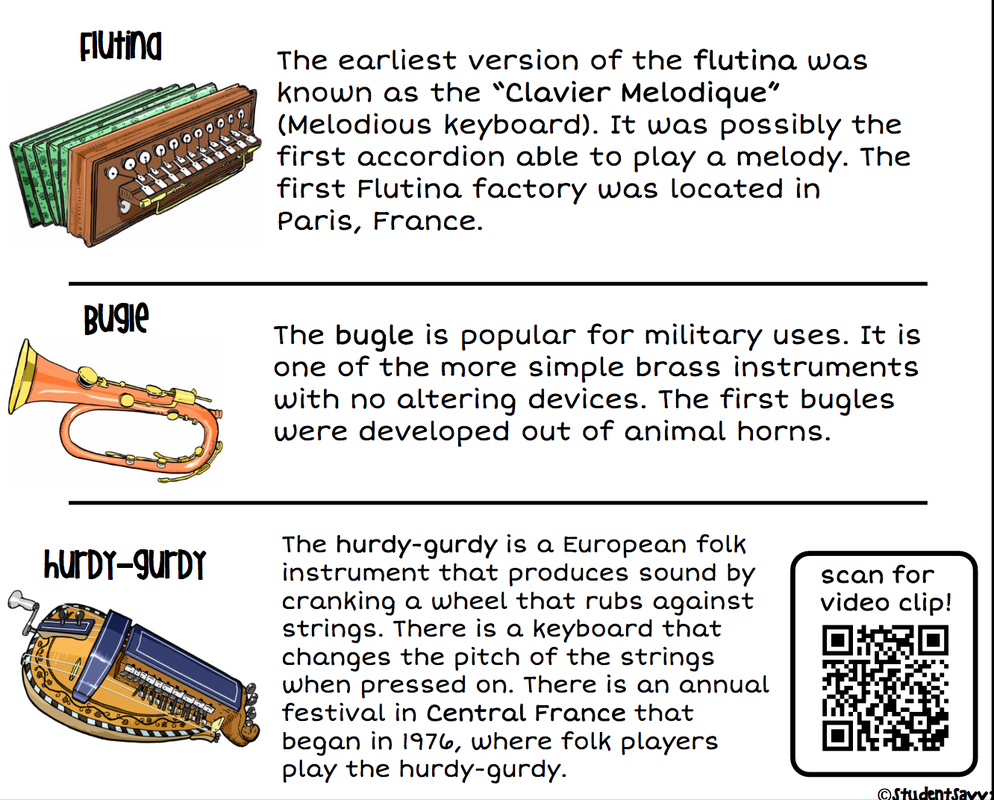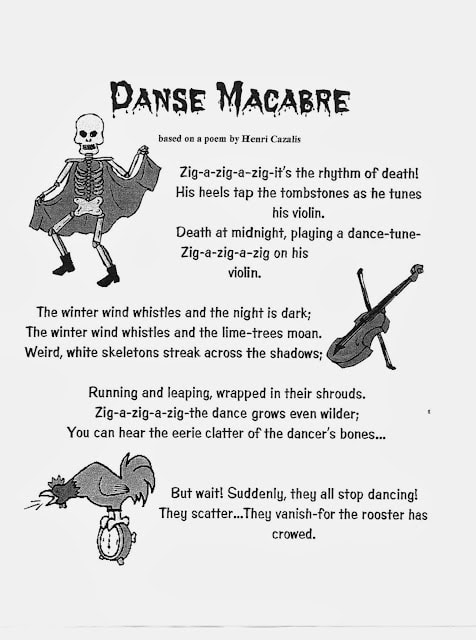FRANCE
|
|
The music of France has a broad range of different styles and genres such as nouvelle chanson and electronic music. French music went through different classical music periods including medieval, renaissance, baroque, and opera. Folk French music is still popular in the remote areas such as the island of Corsica and the Auvergne mountain villages.
|
Traditional French Instruments
Camille Saint-Saëns | 1835-1921
|
Like Mozart, Camille Saint-Saëns was a child prodigy. At age 2 ½ he could pick out tunes on the piano; at the age of 3 he composed his first piece; and by age 7 he was giving public concerts as a pianist and organist. When he was 10, he made his public debut and offered to play any one of Beethoven's 32 sonatas from memory. He had total recall of anything he had ever read.
|
Saint-Saëns was also a conductor, critic, music scholar, teacher and composer. Working in Paris, he founded a society that supported an entire new generation of French composers. His style of music was traditional and conservative and for the most part followed Classical traditions.
|
DANSE MACABRE
"Danse Macabre", one of Saint-Saëns' most famous pieces, is heard a lot around Halloween. It is based on a poem written by Henri Cazalis.
|
|
|
CARNIVAL OF THE ANIMALS
Like a trip to the zoo or an uncle's bad jokes, The Carnival of the Animals is supposed to be fun. So fun, in fact, that composer Camille Saint-Saens feared it would ruin his image. Though he banned most of it from public performance until after its death, it is among his biggest hits today. The French composer was supposed to be working on his third symphony when he took a break to compose Carnival in a small Austrian village in 1886. Though he had a great time writing it, he worried the humorous piece would harm his reputation as a serious musician. Insisting the work be performed in private, he allowed only the iconic cello movement The Swan to be published during his lifetime.
|
|
|



